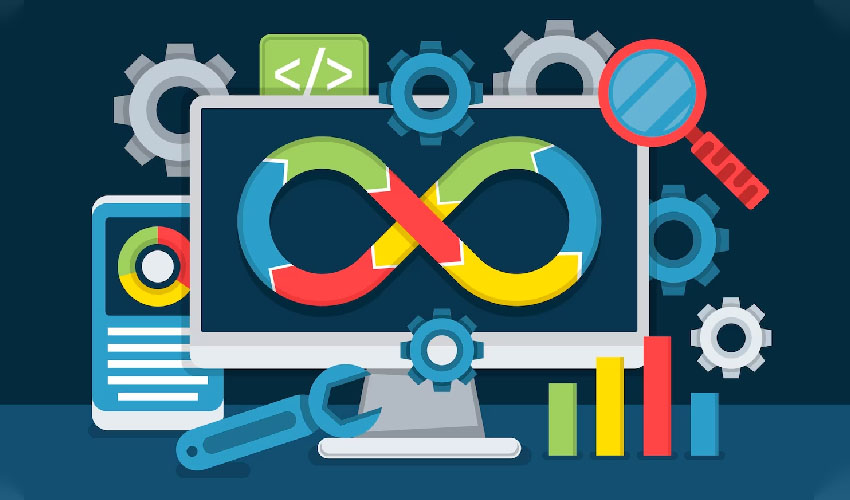Table of Contents
Introduction
In today’s fast-paced digital landscape, mobile applications have become an integral part of our daily lives. Behind the sleek and user-friendly interfaces of these apps lies a crucial element that plays a pivotal role in their success—backend development.
Key Components of Backend Development
Server Management Backend development involves efficient server management to ensure that the app runs seamlessly. A robust server infrastructure is essential for handling user requests and data processing.
Database Management Effective data storage and retrieval are vital for app functionality. Backend developers carefully design and manage databases, ensuring optimal performance and data integrity.
API Integration Connecting the app with external services and resources is achieved through Application Programming Interfaces (APIs). Backend developers integrate APIs to enhance app capabilities and functionality.
User Authentication Ensuring secure user access is a critical aspect of backend development. Authentication protocols are implemented to safeguard user data and maintain app security.
Speed and Performance
Role in App Loading Time Backend development significantly influences app loading times. Optimized backend code and efficient server responses contribute to a faster and smoother user experience.
Impact on User Experience The backend’s role in app performance directly impacts user experience. A well-optimized backend ensures quick response times, reducing user frustration and increasing engagement.
Optimization Techniques Developers employ various optimization techniques, such as caching and load balancing, to enhance app performance. These techniques contribute to a responsive and efficient backend.
Security Measures
Data Protection Backend developers implement robust security measures to protect user data from unauthorized access. Encryption and secure communication protocols are integral components of data protection.
Firewalls and Security Protocols Firewalls and advanced security protocols are implemented at the backend to prevent potential threats. Continuous monitoring and updates are crucial for staying ahead of security challenges.
Scalability
Handling Growing User Base Successful apps often experience a surge in user numbers. Backend development ensures scalability, enabling the app to accommodate a growing user base without compromising performance.
Flexibility in Adapting to Changes The flexibility of the backend is essential for adapting to changes in user demands and technology trends. Scalable architectures allow for seamless integration of new features and updates.
Importance for App Growth Scalability directly influences the growth trajectory of a mobile app. A scalable backend sets the foundation for expanding features, attracting more users, and staying competitive in the market.
Backend Frameworks
Popular Frameworks in Mobile App Development Several backend frameworks are popular in the realm of mobile app development, including Django, Ruby on Rails, and Express.js. Choosing the right framework is crucial for app success.
Choosing the Right Framework for Your App Each framework has its strengths and weaknesses. The choice depends on the app’s specific requirements, scalability needs, and the development team’s expertise.
Framework’s Impact on App Success The backend framework directly affects the app’s performance, development speed, and scalability. A well-suited framework contributes to the overall success of the mobile application.
Cost Considerations
Initial Development Costs Investing in backend development involves initial costs related to infrastructure setup, coding, and database design. Understanding these costs is crucial for budget planning.
Maintenance Costs Ongoing maintenance is a critical aspect of backend development. Regular updates, security patches, and feature enhancements contribute to the app’s longevity but also incur ongoing costs.
Long-term Investment Viewing backend development as a long-term investment is essential. A well-optimized backend can save costs in the long run by minimizing downtime, reducing security risks, and supporting app growth.
Trends in Backend Development
Real-time Applications The demand for real-time applications, such as chat apps and live streaming, has driven backend development towards optimizing for low-latency interactions and seamless user experiences.
Cloud Integration Backend development increasingly leverages cloud services for storage, computation, and scalability. Cloud integration provides flexibility and cost-effectiveness for app developers.
Serverless Architecture The rise of serverless architecture eliminates the need for traditional server management. Backend processes are handled automatically, reducing operational complexities and costs.
Case Studies
Successful Apps and Their Backend Strategies Examining successful apps reveals common backend strategies, such as Airbnb’s scalable infrastructure and Uber’s real-time processing, highlighting the impact of backend development on success.
Lessons Learned from App Failures Analyzing app failures provides valuable insights into the consequences of neglecting backend development. Security breaches, performance issues, and scalability challenges are common pitfalls.
Future of Backend Development
Emerging Technologies Advancements in technologies like AI, blockchain, and edge computing are influencing the future of backend development. Integrating these technologies will define the next generation of mobile apps.
Predictions and Industry Insights Experts predict increased automation, enhanced security measures, and a shift towards serverless architecture as key trends shaping the future of backend development.
Conclusion
In conclusion, the role of backend development in mobile app success cannot be overstated. From ensuring optimal performance and security to facilitating scalability and embracing emerging trends, a well-crafted backend is the backbone of a successful mobile application. Developers and businesses alike should prioritize investing in a robust backend to unlock the full potential of their mobile apps.
Thanks for reading our post “The Role of Backend Development in Mobile App Success”. Please connect with us to know more about Backend Development in Mobile App Success.





















